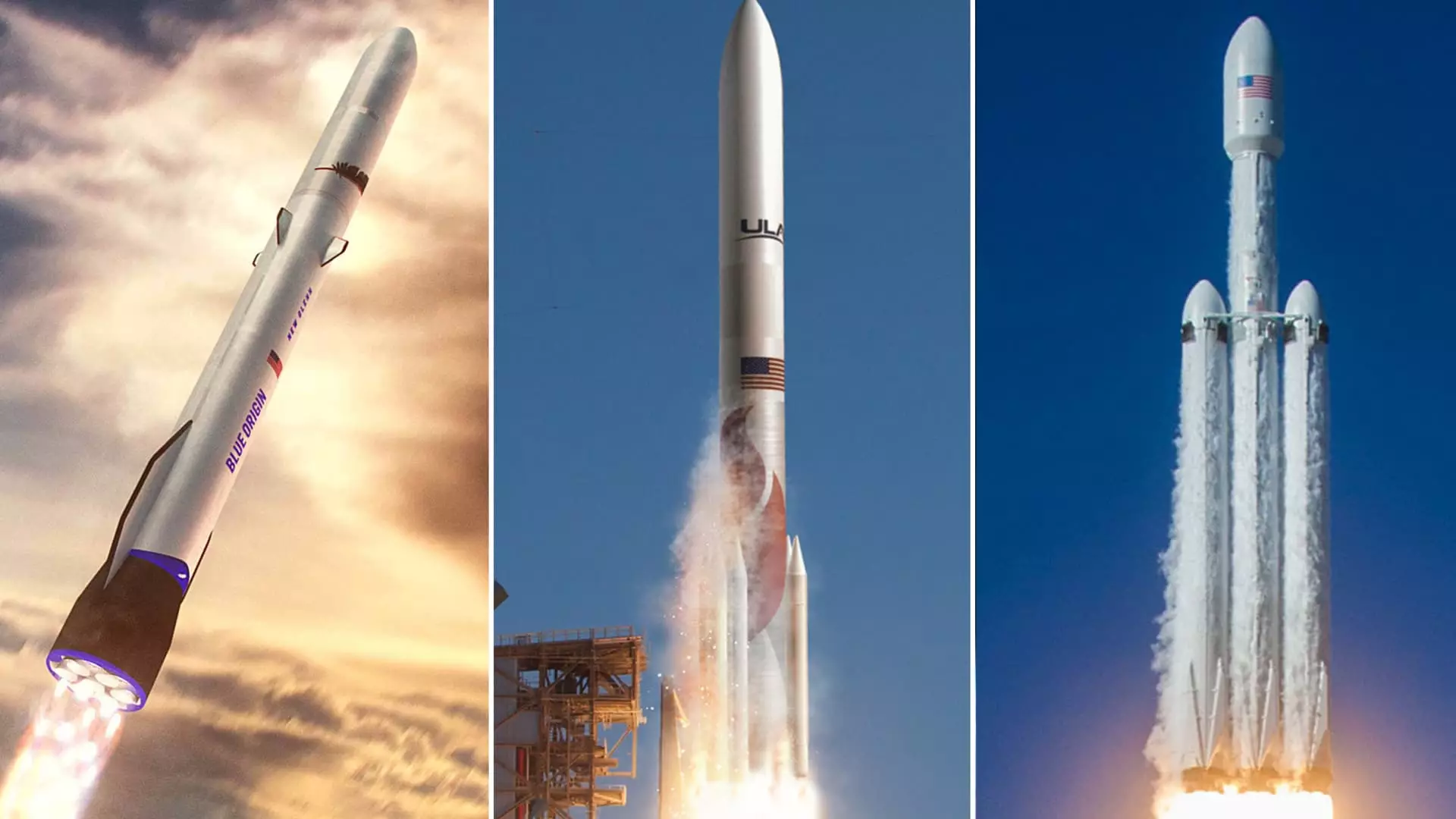The Pentagon recently announced the first winning bidders in its rocket launch contract sweepstakes, and to everyone’s surprise, Jeff Bezos’ Blue Origin secured a spot for the first time. This victory came as part of contracts awarded under the Pentagon’s $5.6 billion National Security Space Launch (NSSL) program. Blue Origin’s winning bid marks a significant milestone for the company and opens up new opportunities for them in the space launch market.
Elon Musk’s SpaceX and United Launch Alliance (ULA), a joint venture of Lockheed Martin and Boeing, were also successful in securing contracts under the multi-year third phase of the NSSL program. This competition among industry giants highlights the fierce rivalry in the space launch sector. With Blue Origin now joining the fray, the competition is only expected to intensify in the coming years.
Under the NSSL Phase 3 Lane 1 program, Blue Origin, SpaceX, and ULA will be eligible to compete for contracts through mid-2029. This extended timeline provides ample opportunities for these companies to showcase their capabilities and secure more contracts in the future. With the U.S. military raising the stakes in the space launch market, companies like Blue Origin have a chance to carve out a larger share of the lucrative space launch industry.
Phase 3 of the NSSL program is expected to see a total of 90 rocket launch orders, with a split approach of categories Lane 1 and Lane 2. This approach allows more companies to participate in the bidding process and promotes healthy competition in the industry. As the space launch market continues to grow, companies will need to stay competitive and innovative to secure valuable contracts from the U.S. military and other clients.
The recent announcement of the winners of the Pentagon’s rocket launch contract sweepstakes marks a new chapter in the space launch industry. With companies like Blue Origin, SpaceX, and ULA vying for contracts, the competition is fiercer than ever. As the industry evolves, companies will need to adapt to the changing landscape and showcase their capabilities to secure future contracts and maintain a strong foothold in the market.

Leave a Reply